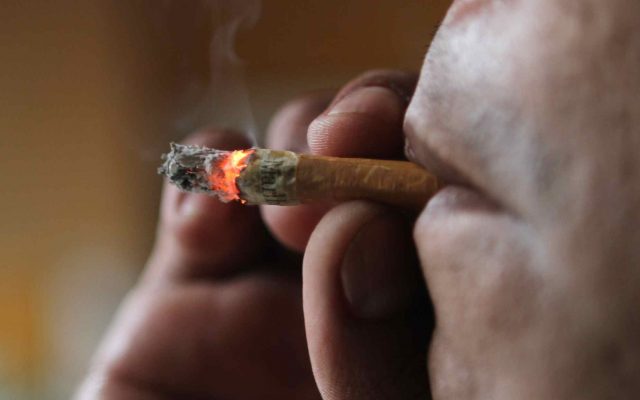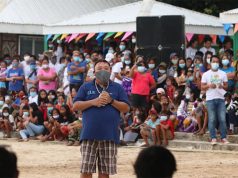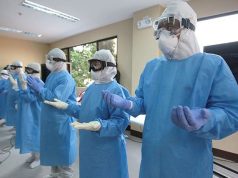
MANILA – Do you want to quit smoking? The Department of Health can help. With the World Health Organization, it has launched the DOH Quitline, a service that you can access by dialing 165-364. Counselors from the Lung Center of the Philippines are available to take your call 24/7.
Long distance charges will apply for callers outside Metro Manila, although the DOH is looking to expand the service so that those outside the National Capital Region can call for free.
The DOH has a mobile-based program, too. Here’s how it works:
1. Text STOPSMOKE to 29290-165-364. Save that number in your contacts under the name STOPSMOKE.
2. Wait for a reply, then register using your full name. (Example: Juan de la Cruz)
3. Reply TULOY if you want to continue the program, or WAKAS if you want to stop.
4. Set a date for quitting smoking within the next two weeks. (Example: 01.07.2017 for July 1, 2017)
5. You are now part of the program. Every day you will receive a text message and a reminder from the DOH Quitline. This will enable you to strengthen your resolve to stop smoking.
6. Reply to the text message only if it comes with a question. It will help if you answer it truthfully, and based on how you are feeling. Don’t worry; each message that you will send and receive is free of charge.
Health Secretary Dr. Paulyn Rosell-Ubial called the hotline “a dream come true for us (anti-) tobacco advocates”. She led the launch at the Lung Center on Monday, where she declared the government’s target to lower smoking prevalence to 15 percent by 2022.
She said she was proud that the Philippines was able to reduce tobacco use from 29.7 percent in 2009 to 23.8 percent by 2015 – a reduction of six percentage points, which is the equivalent of about one million Filipinos who have stopped smoking in the six-year period.
According to a DOH press release, seven in ten Filipino smokers want to kick the habit, as of the 2015 Global Adult Tobacco Survey.
Unfortunately, only four percent of those who had smoked in the past 12 months said they were successful in quitting.
Nevertheless, after President Rodrigo Duterte signed Executive Order 26 banning smoking in public areas, enclosed buildings, and public transportation in May, Ubial said she was emboldened to take tobacco control to different heights during this administration.
Tobacco control would enable the government to save millions of lives at a time, said Ubial, as majority of preventable deaths occur due to tobacco-related diseases.
These are non-communicable diseases such as cancer, heart disease, diabetes, and respiratory disease, according to the DOH.
Ubial said they wanted to provide smokers who wished to quit, but did not know how, with “a menu of services” enabling them to start a tobacco-free life.
At least P27 million was allocated for the project for 2017, according to Lung Center executive director Dr. Vincent Balanag, Jr. But he said that as the Lung Center, being the agency taking the lead, expanded the project’s scope, it would seek a bigger budget in the coming years.
According to Dr. Glynna Ong Cabrera, the Smoking Cessation Program director of the Lung Center, 21 counselors would be hired by the Lung Center to handle the calls. There will be two shifts a day, with each counselor on board for 12 hours.









